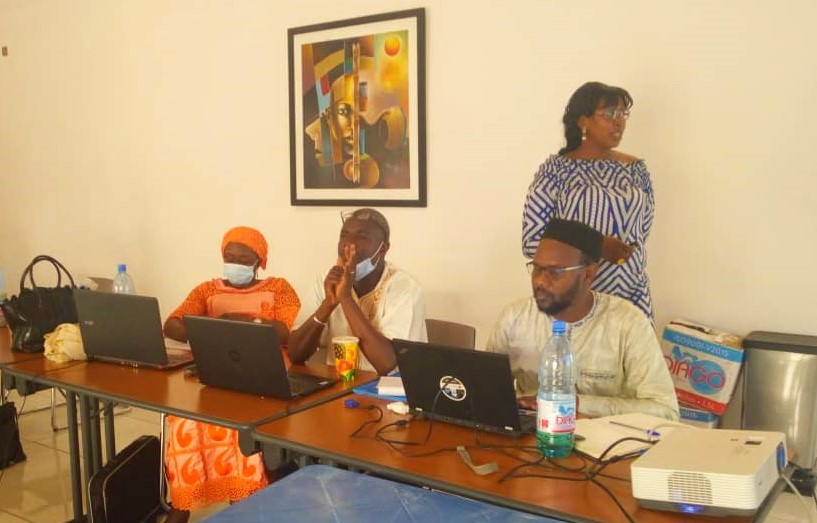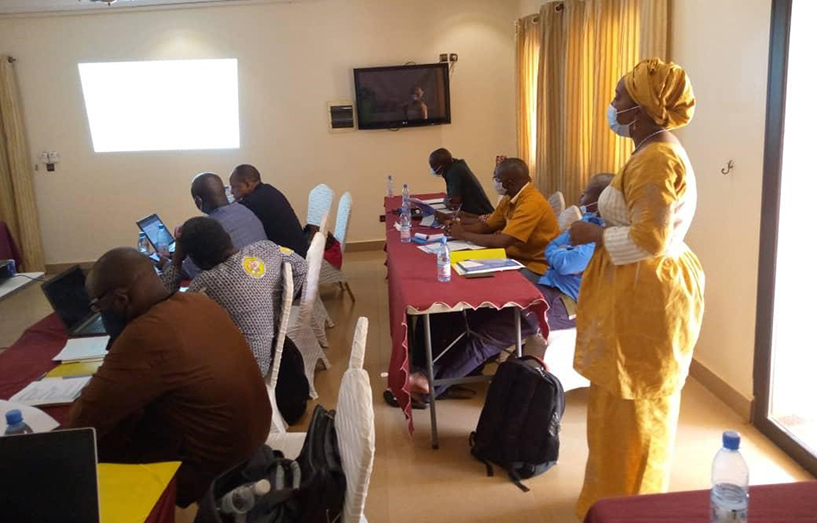COVID-19 Vaccination: MTaPS Builds the Pharmacovigilance Capacity of Health Providers
Pour lire cet article en français, veuillez cliquer ici.
The introduction of a new health product always requires a structured pharmacovigilance (PV) mechanism for surveillance of potential unintended adverse side effects, and the COVID-19 vaccine makes no exception to this rule.
Mali developed a surveillance manual on adverse events following immunization (AEFI) and a national vaccination plan to support the COVID-19 vaccination campaign. However, the lack of training of health care providers on AEFI notification in health facilities and of training of officers specialized in AEFI investigation hinder PV process.

Development of the modules and training of trainers. Photo credit: Dr. Ousmane Traoré, MTaPS
The training modules developed with MTaPS’ support included:
-An introduction and overview of COVID-19
-An overview of PV
-The organization of the national PV system
-Background on AEFI
-Notification of AEFI
-Investigation of AEFI
-Communicating on AEFI during a vaccination campaign
-The prevention and care of AEFI cases
The US Agency for International Development (USAID) Medicines, Technologies, and Pharmaceutical Services (MTaPS) program worked with the subsection on immunization of the General Directorate for Health and Public Hygiene to support the regional directorates of health of Kayes, Koulikoro, and Sikasso and the District of Bamako to build the PV capacity of health care providers.
MTaPS organized a workshop July 8–12, 2021, in Banancoro in the region of Koulikoro to develop PV training modules on AEFI for the COVID-19 vaccination. The workshop included stakeholders from various sectors, including universities, the private sector, the PV experts committee, and central government institutions.
Participants developed eight modules focusing on topics such as the essential steps for managing AEFI, and 17 people (10 men and 7 women) received training to be able to share the appropriate guidelines on different topics.
Subsequently, five training sessions were organized between July 15 and 29, 2021, at which trainers built the capacity of staff involved in PV and AEFI surveillance in 4 hospitals, 4 regional directorates, 36 health districts, and 43 community health centers in the three regions and the District of Bamako.

Training workshop of PV providers. Photo credit: Dr. Safoura Berthé, MTaPS
In total, 125 service providers (97 men and 28 women) were trained. The training helped fill the gaps observed during the initial vaccination campaign deployment, which is a critical step while Mali is receiving vaccine doses to fight the pandemic.
The training will enable providers to systematically share surveillance information and investigate AEFI. The resulting strengthened PV practice will help ensure patient safety during the COVID-19 vaccination program and build trust and community acceptance of the vaccine—an important success factor for the vaccination campaign.